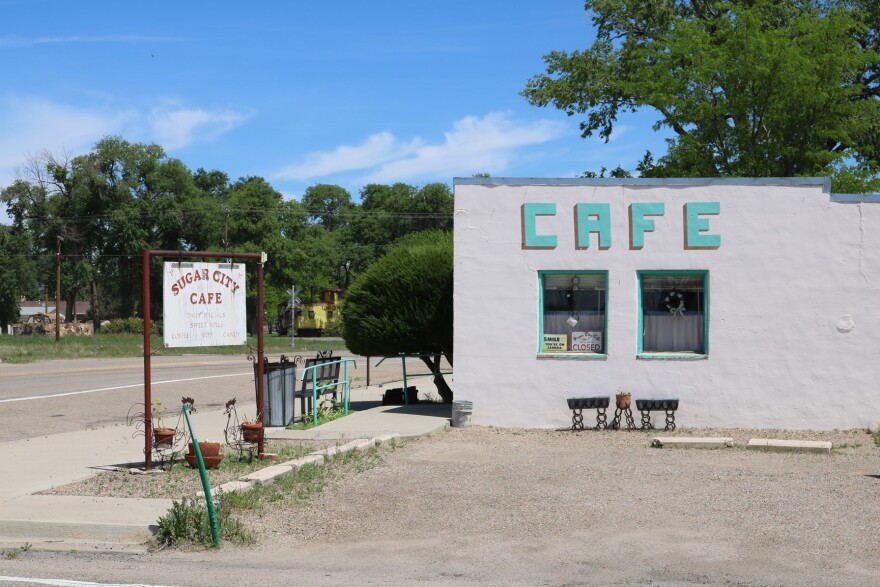I’m Hannes Zacharias from Lenexa for High Plains Public Radio, Radio Reader’s Book Club. The book is “Elevations: A Personal Exploration of the Arkansas River” by Max McCoy.
As Patrick Dobson says, “Max McCoy’s Elevations is a sensitive, in-depth view of a river and its human and natural history…as fluid and adsorbing as the river itself.”
One of the many things I like about the book is Max’s telling of the relatively recent human history associated with the upper Ark.
The stories about Leadville and the “Matchless Mine” tell of the rise and fall of this icon of Colorado history. Leadville was home to one of the world's largest and richest silver camps in the 1880’s, with a population of more than 15,000, fueled by extracting first gold then silver along and even underneath the city, then falling almost to ‘ghost town’ status by 1930 and now a town with only 2,900 residents.
The horrific story of the Ludlow massacre in 1913 builds on the mining history of Colorado where regional economies and local communities rise and then fall propelled by extracting, this time coal…not silver, from the foothills along and beneath the Arkansas River. Walsenburg, Pueblo, and numerous (now ghost towns) along the Ark have seen the devastating impacts of depleting coal reserves, fully consumed over a 70 year time span…at least in this part of the state.
Although not included in Max’s book, the story of sugar production follows this ‘boom and bust’ cycle, affecting cities along the Ark River valley like Fowler, Rocky Ford, Swink, and Holly.

As an 8 year old, I remember summers driving along US 50 from Dodge City west to the cooler Rockies. Upon crossing the Colorado state line, I would get a whiff of the sweet and acrid smell from processing sugar beets into fine sugar…first from the Holly Sugar factory and then from other factories in adjoining cities. Water, both from the Ark and extracted from the ancient reservoirs of the Ogallala Aquifer, spurred the production of Sugar beets and, by extension, fueled the economy of many communities in southeast Colorado. Those cities became shadows of their former selves in the 1970’s when sugar beet production left the area due to corn subsidies, limited water, and other factors.
These stories highlight the folly of building economies on the extraction of resources. When the resources are gone…so is the economy and the associated communities.
This is the message for southwest Kansas, an economy built on cheap, plentiful water mined from finite sources.
I remember in 1970 attending my first 3i (Implements, Industry, and Irrigation) show in Dodge City and seeing the new hot-dipped galvanized Valley central pivot irrigation system occupying a major part of the Civic Center main floor. I was told that soon all of southwest Kansas would be covered with such devices producing more corn than wheat, fueling the feedlot, slaughterhouse, and beef trucking economy. They were right!
Corn is now the biggest crop produced in Kansas. The economy of southwest Kansas has shot up like a geyser due to cheap plentiful water…commensurate with the draining of the High Plains Aquifer…two facts no one disputes.
It appears to me that the fate of southwest Kansas, based on a water extraction economy, is in on a trajectory similar to the stories about silver, coal mining, and sugar production along the Ark River…creeping its way east.
On my 2018 journey down the Arkansas, one brave public servant commented on ground water mining in this part of the state saying…”it’s as if the drunks are in charge of the bar”.
Well said…I just hope the region can survive the hang over.
From here to wherever the river takes me…this is Hannes Zacharias in Lenexa, and you are listening to the High Plains Public Radio, Reader’s Book Club.









